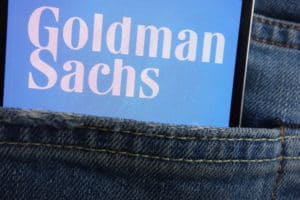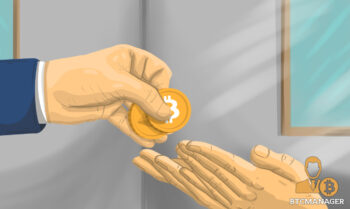2019-10-4 12:20 |
Coinspeaker
Electric Scooter Startup Bird Acquires $275 Million in Funding, Hits $2.5 Billion Valuation
Bird, a startup that rents out electric scooters, has acquired an extra $275 million in Series D funding round led by CDPQ and Sequoia Capital. After raising that amount at a valuation of $2.5 billion, the company claims that is a testament to its effort to improve its unit economics.
Notably, the new funding raises Bird’s post-money valuation to almost $2.8 billion. This funding round comes just a few months after reports emerged that Bird wanted to raise a Series D round at a $2.5 billion valuation led by Sequoia. Bird CEO Travis VanderZanden was speaking at TechCrunch Disrupt San Francisco:
“Nearly a year ago, we recognized that the world was changing. Gone are the days when top-line growth was the leading KPI for emerging companies. Positive unit economics is the new goal line. As a result, we pivoted from growth to unit economics as the top priority for the company.”
Currently, with the best unit economics in the industry, the new Bird investors like CDPQ see that the company is now paving the road for a long term and sustainable healthy business. The funding is a sign that venture capital firms are not done pumping money into e-scooter companies.
All these investments come amidst reports of steep cash losses and extensive vandalism of the scooters. Bird had also raised $418 million in financing in 2018. After its launch in 2017, the Santa Monica-based Bird startup ranked as the fastest company to ever reach a billion-dollar valuation. It snagged the “unicorn” status in a little over a year.
Bird’s Financial StatusBird has so far acquired almost $700 million in funding. That amount includes the latest round that was led by previous investor Sequoia and Quebec pension fund CDPQ. In spite of the initial craze in this sector, investor sentiment towards scooters has dropped significantly.
Bird has faced stiff competition from Lyft, Uber, and Lime. However, Uber has retrenched and removed its Jump bikes from the markets in San Diego and Atlanta. In March, Bird laid off 5% of its staff and currently continues to encounter pressure over the sustainability of its scooters in the dynamic market.
These retrenchments may have come as a result of grim reports that emerged earlier in 2019 about the financial instability of scooter sharing. The startup lost almost $100 million during the first quarter of this year with revenue shrinking severely to $15 million. In the spring, this scooter startup was down to around $100 million left in cash.
Bird now alleges that it has wooed investors due to its renewed emphasis on unit economics. Thus, every scooter brings in considerable amounts of revenue to the company’s coffers. The lifespan of these scooters matters since the more miles and trips they cover, the better it is for the company.
e-Scooter OperationsThe companies need durable scooters since they must recoup the cost of all these vehicles before they can start making profits. However, reports suggest that the electric scooters break down even before the companies can recoup their costs. After extensive analysis, data shows that the average lifespan of a scooter hovers around 28.8 days.
In March 2019, Bird CEO Travis VanderZanden said that every scooter required staying in service for at least six months for the company to recoup the costs of purchase. Since then, the company has rolled out two new scooters; Bird One in May and Bird Two in August. Both of these new scooters are designed to be durable and longer-lasting.
Bird One has a lifespan of 15 months while Bird Two is yet to be distributed. Sources close to the company say that the new funding will be used to chart a definite path to profitability and continued vehicle research and development. These are what Bird believes to be contributing factors to positive unit economics.
Electric Scooter Startup Bird Acquires $275 Million in Funding, Hits $2.5 Billion Valuation
origin »Bitcoin price in Telegram @btc_price_every_hour
BirdCoin (BIRD) на Currencies.ru
|
|



















